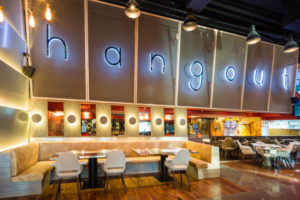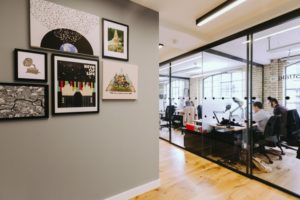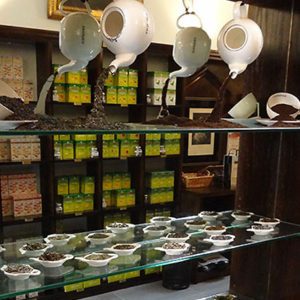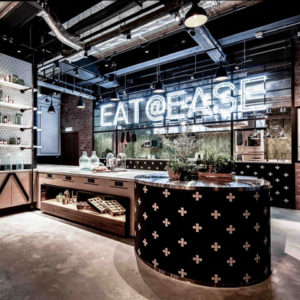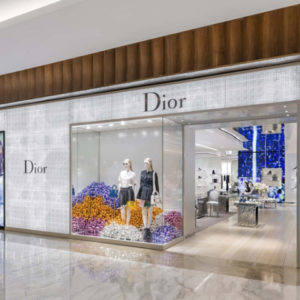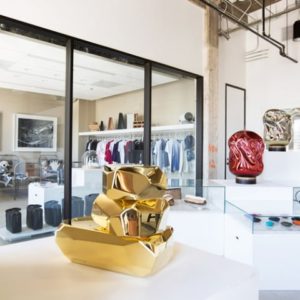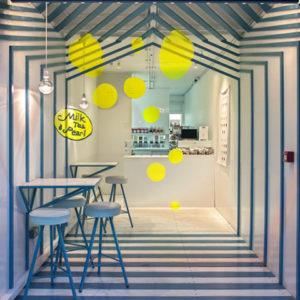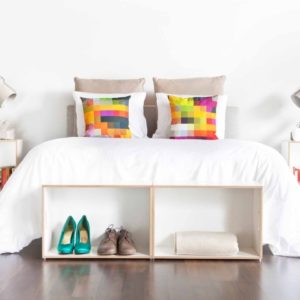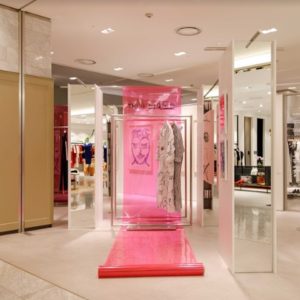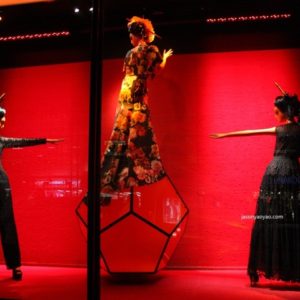


In light of Beirut Design Week 2015, the Food Trend Corporation, managing “Leila” and “Kahwet Leila”, restaurants renowned for their casual Lebanese cuisine, commissioned Lebanese Architect Joseph Barakat to create an installation in their authentic Beiruti café, situated in the heart of the Gemmayzeh district. Joseph Barakat has distinguished himself in the architecture and design field with award-winning projects including the Rifat El Chadirji prize, the Angarsk urban planning competition for the Russian Federation and, in collaboration with FLAT, the first prize in social housing competition held by the municipality of Milan. You can also find his award-winning cuckoo clock, “The Bunker Cucu”, featured in a variety of design books and magazines including Forms with a Smile by Stichting Kunstboek.

The installation consists of an 18 meters long and 2.8 meters high steel wall, placed diagonally, on which 6 prominent vegetables in Lebanese cuisine have been installed in a geometric pattern including: 330 artichokes, 450 heads of Romaine Lettuce, 330 heads of Lollo Verde, 495 heads of Lollo Rosso, 330 heads of Cauliflower and 165 heads of Cabbages. Whereas on the front side visitors can enjoy a mosaic of colors, textures and geometric patterns created by the 6 different types of vegetables, on the backside, the roots of said vegetables are exposed, giving viewers an inside look on how the massive structure was constructed. Otherwise known as “The Great Green Wall”, this installation has been created to support the idea of vertical farming and organic living, two of the most promising fields in agriculture these days. The wall’s various openings used as doors, windows, or bars from which fruity cocktails were served, allowed for visitors to enjoy the wall from various angles while respecting the café’s popular character.

Barakat, a ‘productive architecture’ enthusiast, made sure that the thousands of vegetables applied carefully onto the walls would remain intact, so that once the wall dismounted; they could be donated to local NGO’s.
Design: Joseph Barakat
Photography: Ieva Saudargaitė


















Add to collection
